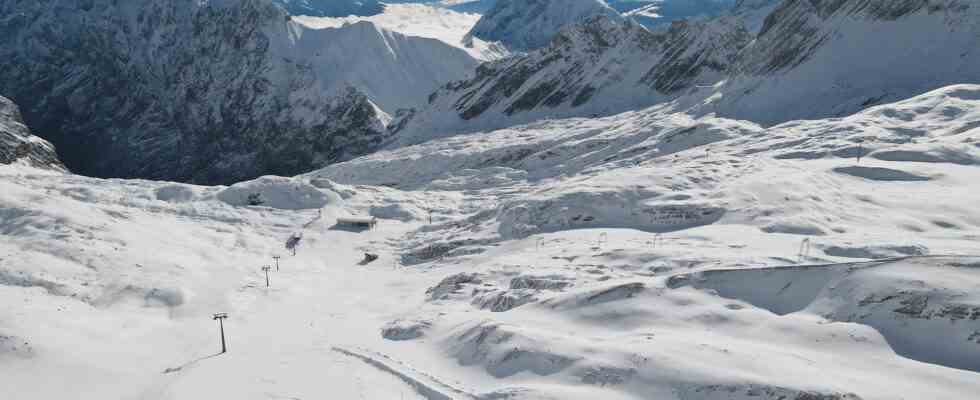Status: 09.11.2022 10:11 a.m
The winter season is approaching on the Zugspitze. In order to save energy, the mountain railway operator lets the lifts run more slowly, and the number of kilometers of snow-covered slopes is decreasing. And it will be significantly more expensive.
“We have the greatest potential for savings in artificial snow,” says Matthias Stauch. Despite the warmer winters in recent years, the board of directors of the Bayerische Zugspitzbahn is hoping for sufficient natural snow. A fifth of the company’s electricity costs of a total of 2.5 million euros in the past 2021/2022 season were caused by machine-generated snow.
According to the current status, three of the four valley runs in the Garmisch-Classic ski area have snow-making capabilities throughout the season. Savings should be made on the width of the slopes, on the thickness of the snow cover and on various variants that fall victim to the red pencil.
“Lots of small savings”
Winter sports are becoming “closer to nature” again: the seats in the chairlifts are no longer heated, and the radiant heaters on the sun terrace are not supposed to burn gas this winter. “Many small savings ultimately result in a lot of energy that we can save,” says the Zugspitzbahn boss.
The company has been analyzing its energy consumption through energy audits since 2014. The weak points are in poorly insulated windows and pipes in buildings. Of the nine gigawatt hours of electricity consumed by the eight mountain railways with ski lifts, restaurants and workshops, 40 percent is used for the transport systems, 20 percent for snowmaking and 40 percent for restaurants and building management. That’s three times as much electricity “as the Oktoberfest in Munich consumes in two weeks,” the company calculates.
Many jobs dependent on tourism
“Locking up is not an alternative,” says Stauch. More than 50 percent of jobs in the region depend directly or indirectly on tourism. Of the 1.9 million overnight guests in Garmisch-Partenkirchen per year, significantly fewer will remain in the winter months without winter sports.
Here, too, the energy crisis is causing prices to rise sharply. On average, it has become more expensive by ten percent compared to last season. The ski pass for the new winter season, which starts on December 2nd, costs 57 euros on the Zugspitze and 55 euros in the Garmisch-Classic ski area.
To this end, the company has introduced uniform parking fees of five euros per vehicle in all parking lots. For season ticket holders, a winter parking ticket is available for EUR 45. With these costs, traveling by train becomes attractive: the combined ticket for the train journey and ski pass costs 65 euros for adults from Munich.

